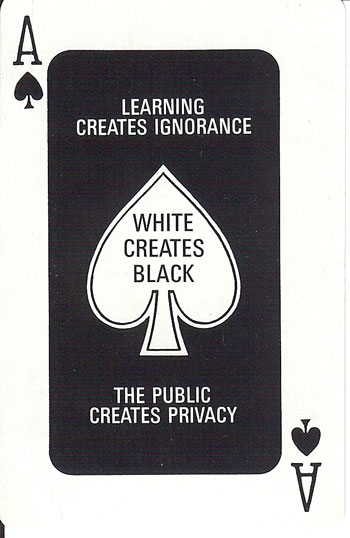Art at its most significant is a Distant Early Warning System that can always be relied on to tell the old culture what is beginning to happen to it. – Marshall McLuhan, Understanding Media
Completed in 1957, the Distant Early Warning Line was 63 station 3000-mile radar array which lined the Artic across Canada to Alaska. Designed to detect incoming missiles in the event of a nuclear attack from the Soviet Union, it was quite an ominous metaphor for McLuhan to employ signifying a need to recognize media’s looming impact on culture. He used the phrase to title a short-lived newsletter, and a card deck – designed as a problem-solving game focused on ‘lateral thinking.’
I’ve always appreciated ‘the end of the world as we know it’ trope which portends we’re all screwed if we don’t fix stuff – and nuclear armageddon was a particular fixation of my youth. As an educational technologist at my university, I’m often confronted with technology that is supposed to save/destroy higher education as we know it. Massive Open Online Courses (MOOCs)! They will be the savior, everyone can get a Harvard education for free! Just sign-up for this self-paced e-learning course on ‘X’ and you’ll save yourself time and money. I’ve been part of the MOOC movement from the beginning, and it’s a lot messier than a set of lecture casts.
I lot of unstructured but ‘connected’ learning happens online and there is a lot we can learn as educators on how we can foster this type of learning in higher education. Using course blogs is my preferred method to support this effort. I created DewLines.org, a WordPress multi-site to support many of the classes I teach for the Communications Technology major. I also encourage adjunct instructors to use it as well if they are interested. There are currently nineteen blogs on the network, used for past or current classes. One of my favorite examples was a particular instantiation of a Teaching with Technology course I’ve taught that took on a maker/gaming theme inspired by Caine’s Arcade. The Education Arcade culminated with an event at which teacher education students invited friends and younger family members to use and play hand-built penny arcade games that taught a particular learning skill.
